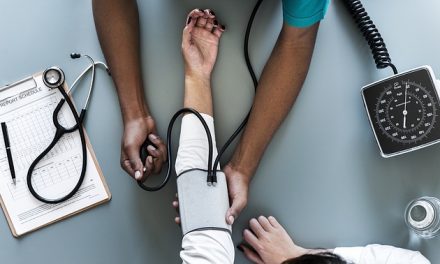Thousands of Americans face surgery each year, often with fear and doubts about whether the right step is being taken. And not knowing what's involved may mean putting yourself through as much grief as the procedure intends to do away with. Whether you are undergoing surgery for the first time or the tenth, understanding why you need it, the risks involved, available alternative treatments, and the aftereffects will help you make the right decisions and deal effectively with the outcome.
The Value of a Second Opinion--Is Surgery Necessary?
The practice of medicine is not an exact science and, consequently, physicians do not always agree. This does not mean they are incompetent or unconcerned about their patients' well-being. It simply means there can be differences of opinion about the best way to treat a medical condition. A second opinion is a time-honored practice in the medical profession that public health authorities believe better enables people to weigh the benefits and risks of surgery against possible alternatives to surgery.
In the case of a middle-aged patient with gallstones, for example, Betsy Ballard, M.D., a surgeon in Silver Spring, Md., explains that the initial recommendation for surgery might be made based on the premise that someone that age would not be satisfied with spending remaining years on the strict diet needed to manage the disease. There also might be the danger of a recurrence or complications, such as pancreatitis, if the dietary restrictions did not successfully treat the disease. A second opinion, however, might reveal that the patient for whom surgery poses a risk or who refuses surgery would be a candidate for medicines or other procedures that can dissolve gallstones. In either case, a second opinion helps the patient make an informed decision about the best treatment for his or her condition.
Arno Albert Roscher, M.D., a clinical professor of pathology who specializes in diagnosing cancer at the Granada Hills Community Hospital in California, says that, like patients, health professionals often find it necessary to seek additional viewpoints as well. For example, some forms of cancer pose controversy for even the most skilled professionals in the field.
"A certified pathologist can generally identify 85 percent of regular tumors," Roscher says, "but if there is a glandular difference, tumors are difficult to diagnose and often require second and sometimes third opinions." He adds that even with the small number of unrecognizable tissue growths, specialists need the availability of additional resources to confirm or dispute their findings and recommendations, such as through the California Tumor Tissue Registry, a network of qualified professionals that was created for such specialized second opinions.
There are, however, instances when emergency surgery is necessary in order to sustain life, such as when the diagnosis of acute appendicitis is firmly made. In this case, surgery must be done quickly and efficiently, and would not warrant a second opinion.
Routine Tests
The practice of ordering routine laboratory tests before admission for surgery is commonplace in most hospitals. Many doctors believe that urinalysis, chest x-rays, or complete blood counts, for example, can identify potential problems that might complicate the surgery if not detected and treated early. Some tests commonly performed before surgery and the symptoms that prompt doctors to order them are:
- chest x-ray--shortness of breath, chest pain, cough, fever without other source, abnormal sounds
- electrocardiogram (EKG)--chest pain, palpitations, arrhythmia, murmur, distant heart sound
- urinalysis--frequency, hesitancy, discharge, side pain, kidney disease, diabetes, use of drugs known to cause kidney disease
- white blood count--fever, suspicion of infection, use of drugs known to affect white blood cell counts
- platelet count--blood loss, easy bruising, alcoholism, use of drugs known to affect platelet count
- glucose--excessive sweating with tremor or anxiety, muscle weakness, diabetes, pancreatitis, cystic fibrosis, altered mental status, alcoholism
- potassium--vomiting, diarrhea, congestive heart failure, kidney failure, muscle weakness, tissue damage, hypertension, diabetes, use of drugs known to affect potassium levels
- sodium--vomiting, diarrhea, excessive sweating, thirst or fluid intake, pulmonary disease, central nervous system disease, congestive heart failure, cirrhosis.
Patients facing surgery need to discuss with their doctors the necessity of having certain tests performed prior to surgery, says Mary Pat Couig, R.N., associate director for nursing affairs at the Food and Drug Administration.
'Going Under'
Anesthesia is the art and science of relieving pain and keeping patients safe and stable during surgery. But for patients already nervous about their impending surgery, the idea of being unconscious may not be a comforting thought, especially if it's coupled with the fear of not regaining consciousness.
According to L. Melvin Elting, former chief of surgery at Riverdell Hospital in New Jersey, and Seymour Isenberg of the Kansas City College of Osteopathy and Surgery, authors of The Consumer's Guide to Successful Surgery, although many people associate anesthesia with regular sleeping, slumber is only a side effect. If you were to go to sleep and surgery began, you'd wake up in a hurry. While sleep involves a dousing of the highest brain recognition centers derived from the senses, it would take only a mild stimulus to peak them to alarm.
The unconsciousness or "deep sleep" required for surgery is another matter. The deep sleep that is required for loss of sensation of pain occurs in stages, beginning with a gradual dozing off to an eventual drifting into paralysis so that the nerve responses are dampened. Unconsciousness must then be maintained during surgery so that patients are not aware of their surroundings and do not experience pain.
Problems traditionally associated with anesthesia such as drug hangover, nausea, and awareness have been lessened over the years by better drugs, improved monitoring, and specialized training.
Waking to a Nightmare
Although it is rare, some patients have reported "awareness" or experiencing sensations while under anesthesia. Those patients say they recall hearing snatches of conversations, being aware of movement, and feeling pain. But whether this awareness really occurs or is just the subconscious mind playing tricks that come back to haunt the conscious mind has been subject to a lot of debate in the medical community. According to Elting and Isenberg, when the anesthesia is weak, or the depth of unconsciousness is purposely held shallow, the subconscious may provide its own interpretations of what is happening and those interpretations may not necessarily be accurate.
But whether or not awareness is real, anesthesiologists are always on the lookout for indications of "light" anesthesia, such as sweating or involuntary twitching. In these cases, says Brenda Hayden, R.N., an interdisciplinary scientist with FDA's Center for Devices and Radiological Health, the anesthesiologist would increase the anesthesia to put the patient in a deeper state of unconsciousness.
Hospital Infections
According to the national Centers for Disease Control and Prevention, approximately 2 million people a year contract infections during a hospital stay, and nearly 90,000 die as the result. Urinary tract infections, surgical wound infections, pneumonia, and bloodstream infections annually are the most common hospital-acquired infections. Of those, pneumonia and bloodstream infections cause the most deaths (about 34,000 and 25,000 respectively; infections from surgical wounds cause about 11,000 deaths, and urinary tract infections 9,000). Those numbers would be far greater, CDC says, without infection-control programs that have been required for hospital accreditation since 1976. In fact, according to a recent CDC survey of 265 hospitals nationwide, without these programs, there would have been 50 to 70 percent more infections and deaths.
Hand washing is the single most important procedure for preventing hospital-acquired infections, according to CDC. Patients and their families should ask their health-care workers to follow good hand washing practices, and bring it to their attention when they do not. In addition, health-care professionals need to follow CDC guidelines and recommendations on the use of intravenous lines and other medical devices, and the proper use and administration of antibiotics.
Patients should alert their physicians or nurses who are providing them care, or hospital administrators, if they have concerns about their health-care workers' practices. All states have licensing and oversight bodies in their state health departments that respond to concerns and complaints brought by patients.
Patients should always provide their doctors with a complete health history, including:
- other medications (some drugs may increase the risk for infection)
- infections
- recent exposure to people or animals who might have infectious diseases
- travel to areas with high rates of infectious diseases.
FDA Consumer










